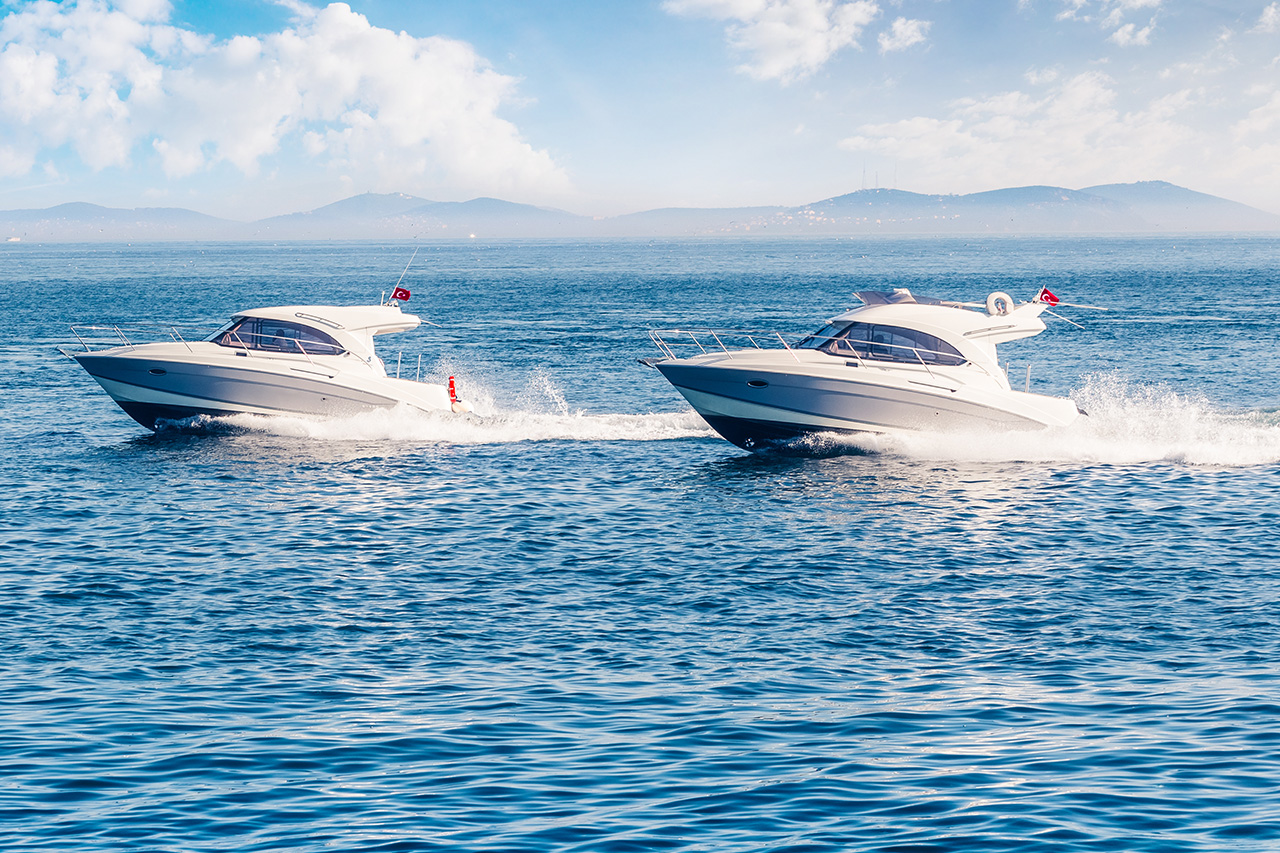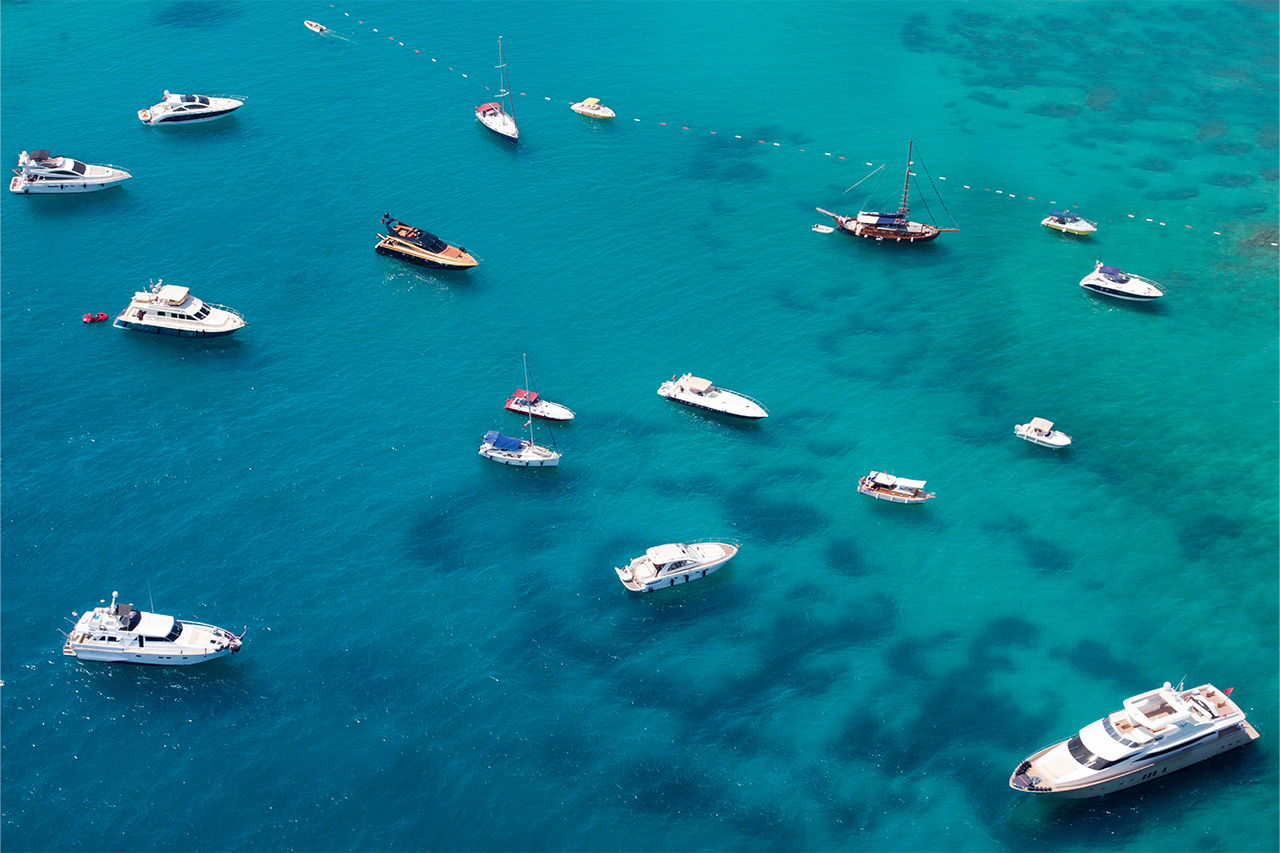The Basic Rules of Boating Etiquette
First off, let’s be sure to say that this post is by no means all you need to learn before you get behind the console of a boat. But it’s great for starters. Whether you’re a new boat owner or just decided to buy a boat, here are some essential boating etiquette rules you’ve got to know before you leave the dock.

When passing a boat, be sure to apply boating etiquette rules and give a safe and respectful distance, and keep it slow until you’ll no longer disrupt them with your wake.
Right of Way
This isn’t as easy as starboard vs port side.
When passing another boat, you want to mind your space and speed, which will be dictated also by the water’s depth. If you’re passing a stationary boat give as wide a space as possible — you want to minimize the disruption. Slow down to reduce your wake, and give ample passing space. Whether due to activity, speed or size, sometimes you’re the undertaken boat If you’re the captain of that boat, stay your course but reduce speed. Human powered boats have the right of way over sailboats, and sailboats over powerboats. If a vessel has restricted movement, it’s automatically the standing vessel — the one being passed. And if two boats are passing each other head-on, both boats should turn to starboard and pass port to port.
Anchorage Etiquette
Respect your temporary environment and neighbors like you do your permanent residence.
When entering an anchorage, it’s best to follow the lead of boats already there in terms of distance, line and number of anchors, so if the winds change, you’ll all move in the same manner. Be sure you’re not dropping anchor in a channel, which is marked by green and red buoys. Always enter at a slow speed as people may be in the water, and mind your wake so you don’t upset stationary vessels. Just like with camping, turn your generators off at night, and keep the sound down in general after 8pm — and whatever the time, mind the wind. If you’re doing some heavy cooking or partying, you might want to be sure you move downwind.
Being a Good Neighbor
Camaraderie is part of what makes boating life fun.
When you’re at a boat ramp, be safe and efficient. Save the cleaning or draining for once you’ve cleared the way for another boater. Similarly, when fueling up at the marina, be quick and move on so that others can take your space. If you need to hop off to run errands or chit-chat, do so from a space designated for longer docking. Whether coming in or out, no matter what the traffic, obey the speed limit. Keep your space neat and clean. And keep your eyes open for others who could use a hand.

Mind your distance and your manners when Anchored. If you’re cooking or partying up a storm, move downwind for more privacy and to be less disruptive.
Preparing Your Passengers
The captain is responsible for both the safety and the behavior of all who are aboard.
Let your guests know the rules and things to bring way ahead of boat launch, from shoes and clothes to sunblock and more. This ensures they’ll be prepared for their time on board, and know what is expected of them, especially if they have crew duties aboard. Even if you have a small boat, it’s always responsible to go over safety procedures, including who will take over for you in the event of an emergency. Be sure to give passengers a quick walk-through to familiarize themselves with the layout. And above all else, be sure they know where the life vests are, if they’re not required to wear them.
The majority of boating etiquette rules are more common sense than they are technical. Respect other boats and boaters, whether you’re passing them or anchored next to them. Offer to lend a hand; you will definitely need one from time to time, too. Above all else, be serious about safety so you can relax and enjoy all the fun boating brings.
